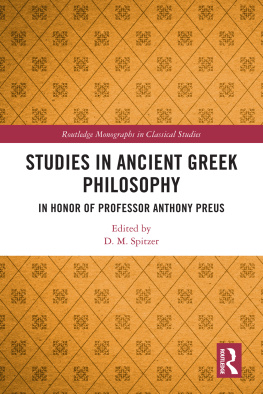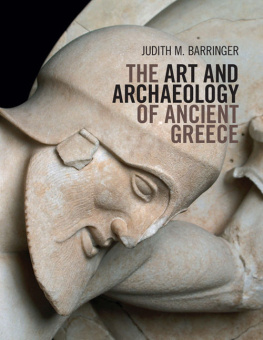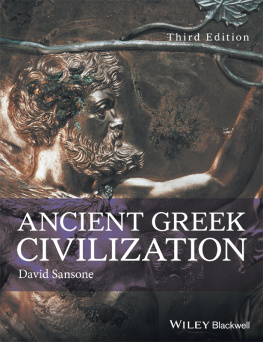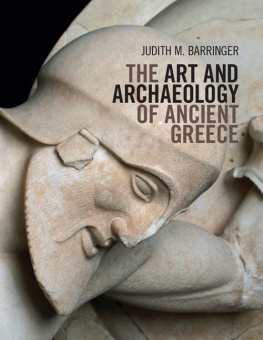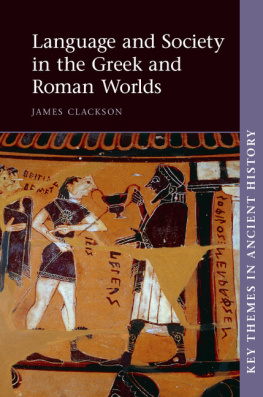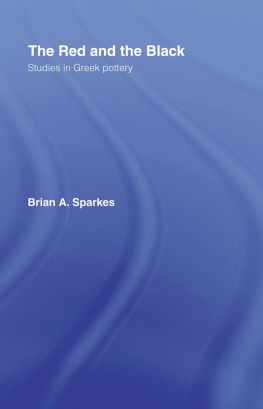
Consumerism in the Ancient World
Greek pottery was exported around the ancient world in vast quantities over a period of several centuries. This book focuses on the Greek pottery consumed by people in the western Mediterranean and trans-Alpine Europe from 800 to 300 BCE , attempting to understand the distribution of vases, and particularly the reasons why people who were not Greek decided to acquire them. This new approach includes discussion of the ways in which objects take on different meanings in new contexts, the linkages between the consumption of goods and identity construction, and the utility of objects for signaling positive information about their owners to their community. The study includes a database of almost 24,000 artifacts from more than 230 sites in Portugal, Spain, France, Switzerland, and Germany. This data was mapped and analyzed using geostatistical techniques to reveal different patterns of consumption in different places and at different times. The new approaches explored in this book mark a movement away from reliance on fragments of ancient authors descriptions of western Europe, remains of monumental buildings, and major artworks in order to investigate ancient Greek social life and more ordinary forms of material culture.
Justin St. P. Walsh is Assistant Professor in the School of Art at Chapman University. He has worked for more than a decade at archaeological sites across the Mediterranean, especially Morgantina in Sicily, and has been the recipient of a Rome Prize, a Fulbright Grant to Greece, and numerous other awards. He is the author of several articles on Greek pottery, cross-cultural interactions, and the protection of cultural heritage.
Routledge Monographs in Classical Studies
1 The Roman Garden
Space, Sense and Society
Katharine T. von Stackelberg
2 The Eunuch in Byzantine History and Society
Shaun Tougher
3 Actors and Audience in the Roman Courtroom
Leanne Bablitz
4 Life and Letters in the Ancient Greek World
John Muir
5 Utopia Antiqua
Rhiannon Evans
6 Greek Magic
Ancient, Medieval and Modern
Edited by John Petropoulos
7 Between Rome and Persia
The Middle Euphrates, Mesopotamia and Palmyra Under Roman Control
Peter Edwell
8 Passions and Moral Progress in Greco-Roman Thought
Edited by John T. Fitzgerald
9 Dacia
Landscape, Colonization and Romanization
Ioana A. Oltean
10 Rome in the Pyrenees
Lugdunum and the Convenae from the First Century B.C . to the Seventh Century A.D .
Simon Esmonde-Cleary
11 Virgils Homeric Lens
Edan Dekel
12 Platos Dialectic on Woman
Equal, Therefore Inferior
Elena Blair
13 Roman Literature, Gender, and Reception
Domina Illustris
Edited by Donald Lateiner, Barbara K. Gold and Judith Perkins
14 Roman Theories of Translation
Surpassing the Source
Siobhn McElduff
15 Displaying the Ideals of Antiquity
The Petrified Gaze
Johannes Siapkas and Lena Sjgren
16 Menander in Contexts
Edited by Alan H. Sommerstein
17 Consumerism in the Ancient World
Imports and Identity Construction
Justin St. P. Walsh
First published 2014
by Routledge
711 Third Avenue, New York, NY 10017
and by Routledge
2 Park Square, Milton Park, Abingdon, Oxon OX14 4RN
Routledge is an imprint of the Taylor & Francis Group, an informa business
2014 Taylor & Francis
The right of Justin St. P. Walsh to be identified as author of this work has been asserted in accordance with sections 77 and 78 of the Copyright, Designs and Patents Act 1988.
All rights reserved. No part of this book may be reprinted or reproduced or utilized in any form or by any electronic, mechanical, or other means, now known or hereafter invented, including photocopying and recording, or in any information storage or retrieval system, without permission in writing from the publishers.
Trademark Notice: Product or corporate names may be trademarks or registered trademarks, and are used only for identification and explanation without intent to infringe.
Cover Image: Athenian red-figure stemless cup attributed to the Amphitrite Painter, ca. 450440 BCE (KAS 113, Landesmuseum Wrttemberg). This cup was broken and repaired in antiquity, at which time it was also given gold appliqu decoration in the La Tne style. It was found in a secondary burial in the mound at Kleinaspergle, Asperg (Kr. Ludwigsburg), Germany. Photo: P. Frankenstein, H. Zwietasch; Landesmuseum Wrttemberg, Stuttgart, by permission.
Library of Congress Cataloging-in-Publication Data
St. P. Walsh, Justin.
Consumerism in the ancient world : imports and identity construction / by
Justin St. P. Walsh.
pages cm. (Routledge monographs in classical studies ; 17)
Includes bibliographical references and index.
1. Mediterranean RegionCommerceHistoryto 1500.
2. CommerceHistoryTo 500. 3. Consumption (Economics)
Social aspectsMediterranean Region. 4. Pottery, GreekMediterranean
Region. 5. Pottery, AncientMediterranean Region. 6. Mediterranean
RegionAntiquities. I. Title.
HF381.S7 2014
382.09182200901dc23
2013031937
ISBN: 978-0-415-89379-4 (hbk)
ISBN: 978-1-315-81717-0 (ebk)
Typeset in Sabon
by Apex CoVantage, LLC
To Carlie, for her love and infinite patience
Contents
Digital and printed maps were created using open-source data supplied by the Global Administrative Areas database (http://www.gadm.org/), Natural Earth (http://www.naturalearthdata.com), and the European Environment Agency (http://www.eea.europa.eu).
All photographs were taken by the author. are used by kind permission of Dr. Sebastin Celestino Prez. All printed maps and charts were designed by Summer Woodward from data created by the author; all digital maps were created by the author.
DK Diels, H.A. 1962. Die Fragmente der Vorsokratiker , 6th ed., rev. by W. Kranz. Berlin: Weidmannische Buchhandlung.
FGrHist Jacoby, F. 19231998. Die Fragmente der Griechischen Historiker. 4 parts. Berlin/Leiden: Weidmannische Buchhandlung/Brill.
This book owes a heavy debt to the scholarship of Professor Michael Dietlernot only his recent magnum opus, Archaeologies of Colonialism: Consumption, Entanglement, and Violence in Ancient Mediterranean France, which was published just after the proposal for this book was accepted by Routledge in 2010, but also his extensive series of articles over more than 20 years on consumption, exchange, and the social importance of alcohol and feasting. He has undoubtedly been one of the most successful scholars at bridging the traditional divide between classical archaeology and the discipline as it is practiced in other parts of the world and in other periods, a quality that I find particularly admirable.
I have relied on many of Dietlers ideas and findings for more than a decade, first as I wrote my dissertation on the site of Morgantina in Sicily, and since then in several articles on Greek pottery in colonial contexts. I see this book not as a repetition of Archaeologies of Colonialism, or even a counterpoint to it, but rather as a continuation of it and a supplement to it. In some respects, my work is much more constrained than Dietlers, since it leaves aside most discussion of subjects that have often formed part of comparative colonial studies, such as urban planning, construction techniques, funerary rites, or linguistics, and concentrates instead only on one type of evidence: Greek pottery. On the other hand, this book is also more expansive than his, dealing, as it does, with a much wider area than the south of France and thus more cultural groups. The broader geographic range is particularly useful for identifying whether patterns that were found could be considered typical or unusual. I have introduced a few new ideas from other scholars to build upon the framework for consumption proposed by Dietler, and I have used a new tool, kriging, from the world of geostatistics to provide evidence for analysis.


